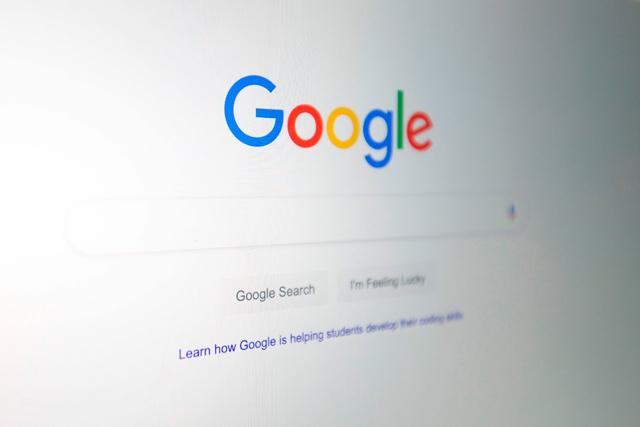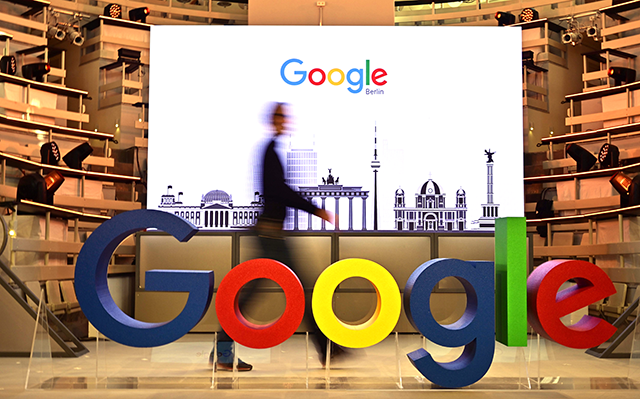You are here
French media take copyright fight to Google
By AFP - Oct 24,2019 - Last updated at Oct 24,2019

In this file photo taken on July 10, the Google logo is seen on a computer in Washington, DC. (AFP photo)
PARIS — French media firms said on Thursday that they would drag Google before the country's competition regulator over its refusal to pay for displaying their content in search results, setting up a legal fight over a new EU copyright law.
The APIG press alliance, which groups dozens of national and regional newspapers, said it would also press the French government to take action against the US Internet giant.
"We are outraged," said Jean-Michel Baylet, APIG president and chief executive of the Depeche du Midi newspaper in southern France.
"Nobody can flout the law, but that's what Google is doing," he said. "The future of the French and European press is at stake."
International news agency Agence France-Presse (AFP), which is not a member of the alliance, said it was preparing a separate complaint.
France in July became the first country to ratify an EU copyright law which was passed this year and came into force on Thursday to ensure publishers are compensated when their work is displayed online.
The new rules create so-called neighbouring rights to ensure a form of copyright protection for media firms when their content is used on websites such as search engines or social media platforms.
But Google says articles, pictures and videos will be shown in search results only if media firms consent to let the tech giant use them for free.
If they refuse, only a headline and a bare link to the content will appear, Google said, almost certainly resulting in a loss of visibility and potential ad revenue for the publisher.
'Act of force'
"This is an act of force from Google," said Pierre Louette, CEO of Les Echos-Le Parisien media group, accusing the company of trying to "circumvent" the law.
"Google is offering us a choice between amputating our [Internet] traffic, which will prevent readers from finding us or accessing our sites via its search engine, and amputating our rights," he told AFP.
The company rejected the claims in a statement to AFP, saying: "Google helps Internet users find news content from many sources and the results are always based on relevance, not trade agreements."
The company insisted that "publishers have never had so many choices about how their content is displayed on Google", and reiterated that it would "not remove them from the search engine nor change the way it assesses the relevance" of search results.
"The law does not impose a fee for posting links, and European news publishers already derive significant value from the eight billion visits they receive each month from Internet users who do searches on Google," it said.
News publishers have said these links do not help them cope with plummeting revenues as readers migrate online from traditional media outlets.
'Untenable'
More than 1,000 journalists, photographers, filmmakers and media CEOs signed an open letter published in newspapers across Europe this week urging governments to ensure that Google and other Internet or social media firms comply with the new EU rule.
Their letter described Google's move as an insult to national and European sovereignty.
"The existing situation, in which Google enjoys most of the advertising revenue generated by the news that it rakes in without any payment, is untenable and has plunged the media into a crisis that is deepening each year," it said.
The presidents of the European Alliance of News Agencies and the European Newspaper Publishers' Association also signed the letter.
French President Emmanuel Macron has said Google must comply with the law, which EU member states are obliged to translate into domestic legislation by June 2021.
"Google is making a big mistake," Digital Affairs Minister Cedric O said Thursday. "It is not up to companies to decide the law and spirit of the law."
Google said it would be available to answer any questions to the competition authority.
Related Articles
PARIS — Agence France-Presse (AFP) said on Tuesday that it had lodged a complaint with French regulators over a standoff with Google, saying
SAN FRANCISCO — Google will pay partnered media publishers in three countries and offer some users free access to paywalled news sites, the
BERLIN — Google offered to exclude its "Google News Showcase" service from general search results in Germany to end an investigation by the

















